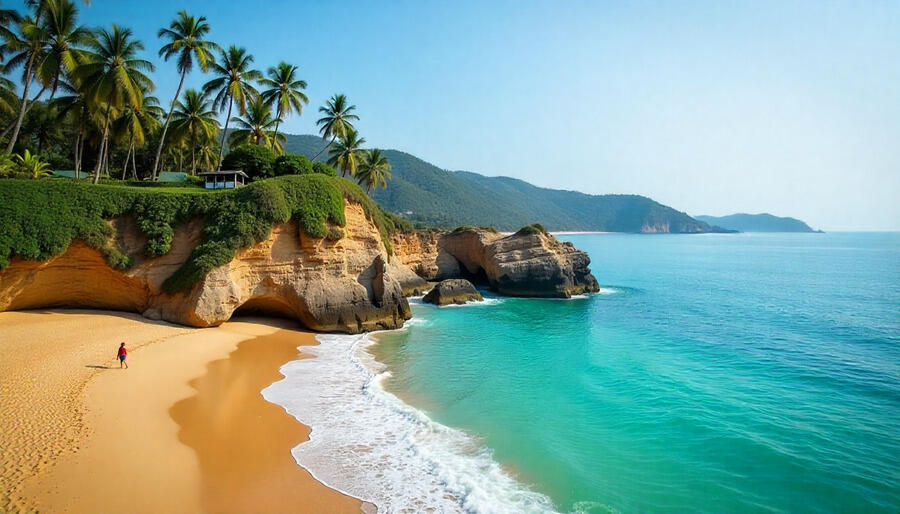Published on
October 9, 2025

Goa is set to take center stage at ITB Asia 2025, Asia’s leading travel trade event, happening from October 15–17, 2025, at Marina Bay Sands, Singapore. The state is moving beyond the conventional image of a beach-centric destination, presenting itself as a hub for meaningful, culturally immersive, and environmentally responsible travel experiences.
In its evolving tourism approach, Goa is prioritizing regenerative tourism, aiming to create positive impacts on local communities, preserve cultural heritage, and protect the natural environment. By showcasing upgraded infrastructure, safer travel environments, and a broad range of experiential offerings, the state is signaling its readiness to welcome travelers seeking deeper, transformative journeys rather than standard leisure vacations.
The Goa pavilion at ITB Asia will act as a vibrant platform connecting international travel partners with local stakeholders. Visitors will encounter thoughtfully curated experiences, including heritage trails through historic towns, spiritual circuits centered on temples and wellness hubs, and retreats based on holistic and traditional healing practices. The pavilion will also highlight rural tourism initiatives, local festivals, and community-led projects, demonstrating how tourism can drive social, economic, and environmental benefits simultaneously.
A key feature of Goa’s representation is its emphasis on biodiversity and conservation. The state’s Forest Department will join the delegation to showcase Goa’s wildlife protection programs, immersive zoo experiences, and rich ecological diversity. This focus highlights the integration of natural and cultural heritage, underscoring the state’s commitment to sustainable tourism practices that respect both ecosystems and local traditions.
Goa’s tourism model is designed to be inclusive, ensuring that communities directly benefit from visitor engagement. By promoting responsible travel, the state encourages tourists to support local livelihoods, participate in cultural experiences, and engage with initiatives that safeguard the environment. This approach transforms tourism into a tool for regeneration, creating lasting value for both residents and travelers.
Participation at ITB Asia also provides an opportunity to expand international partnerships and attract new markets. By presenting a cohesive vision of sustainable and community-focused tourism, Goa seeks to demonstrate how a destination can remain globally connected while retaining authenticity. The pavilion will offer insights into the state’s long-term strategy for responsible tourism, showing how economic growth, cultural preservation, and environmental stewardship can coexist.
Through this platform, Goa is reshaping its tourism identity, emphasizing experiences that are educational, immersive, and socially responsible. Travelers can explore initiatives that range from rural homestays and heritage preservation projects to wellness retreats and spiritual journeys, highlighting the potential for tourism to create meaningful connections while leaving positive footprints.
Goa’s commitment to holistic tourism reflects a forward-thinking philosophy, where leisure and sustainability work hand in hand. By integrating cultural heritage, environmental protection, and community involvement into its offerings, the state is setting a standard for destinations worldwide that aspire to implement responsible tourism practices.
The state’s presence at ITB Asia 2025 signals a new chapter in Goa’s tourism story, one where visitors are encouraged to experience the region in a way that nurtures the environment, supports communities, and preserves traditions. The initiative highlights how travel can be both enjoyable and impactful, turning tourism into a force for positive change.
By showcasing its diverse offerings—from cultural and spiritual experiences to wildlife conservation and wellness programs—Goa is emerging as a global example of regenerative tourism. The state is demonstrating that destinations can attract international visitors while ensuring tourism contributes to social, cultural, and ecological well-being, creating memorable experiences that resonate long after the journey ends.



